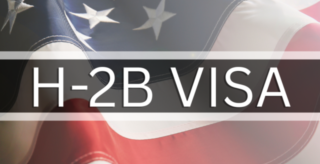How Immigrant Entrepreneurs Can Attract and Hire the Right Talent in the U.S.
Building a successful business in the United States depends on one essential element: the right team. As an immigrant entrepreneur, hiring talent—whether local or international—can bring invaluable skills and diversity to your company. Here’s a complete guide on how to attract and hire the talent you need, with the help of USA Legal Now. 1. Understanding the U.S. Talent Market The U.S. job market is diverse but competitive. Some industries are facing talent shortages, creating opportunities for immigrant entrepreneurs to fill those gaps. Industries with High Demand for Talent: Technology: Software developers, cybersecurity experts, and data analysts. Healthcare: Registered nurses, physicians, and medical technologists. Engineering: Civil, mechanical, and electrical engineers. Skilled Trades: Electricians, welders, and machine operators. Academia & Research: STEM educators and researchers. 2. Overview of Visa Categories If you’re considering international hiring, understanding visa categories is crucial. Here are the most relevant options for sponsoring foreign workers: H-1B Visa (Specialty Occupations): For highly skilled professionals in areas like IT, engineering, or healthcare. Requires a bachelor’s degree or equivalent. L-1 Visa (Intra-Company Transfers): For transferring executives, managers, or specialists from an international branch to the U.S. O-1 Visa (Extraordinary Ability): For individuals with exceptional achievements in science, arts, education, business, or sports. H-2B Visa (Non-Agricultural Temporary Work): For seasonal or temporary jobs in hospitality, construction, or landscaping. 💡 Tip: Each visa has specific requirements. Working with specialists like USA Legal Now ensures you meet all the criteria. 3. Hiring International Talent If local hiring isn’t enough, sponsoring international talent can be a powerful solution. Here’s how and why: Benefits of Hiring International Talent: Fill critical skill gaps in high-demand industries. Increase cultural diversity and global perspectives. Foster innovation with unique problem-solving approaches. Steps to Sponsor International Talent: Register your company as a sponsor with U.S. immigration authorities. Submit Labor Condition Applications (LCAs) to the Department of Labor. File visa petitions (e.g., H-1B, O-1, L-1) for eligible employees. Ensure compliance with wage, labor, and immigration laws. 💡 Pro Tip: Global hiring requires a clear strategy. USA Legal Now can guide you through the process to ensure legal and operational compliance. 4. Hiring Local Talent While international hiring is valuable, tapping into local talent strengthens your foundation. Where to Find Local Talent: Job Platforms: Post openings on LinkedIn, Indeed, and Glassdoor. Networking Events & Job Fairs: Meet candidates in person. Educational Institutions: Partner with colleges and universities for internships and recruiting. Employee Referrals: Encourage your team to refer qualified candidates with referral bonuses. 5. Complying with U.S. Labor Laws Whether hiring locally or internationally, complying with U.S. labor laws is essential for long-term success. Key Requirements: Work Eligibility Verification: Use Form I-9 and E-Verify to confirm authorization. Wage & Hour Laws: Follow federal and state minimum wage, overtime, and employee classification rules. Benefits: Depending on state and business size, you may need to offer health insurance and more. Employer Taxes: Register with the IRS and state authorities for payroll and tax compliance. 6. Resources to Help with Hiring Use these tools to streamline your hiring process: SCORE: Free mentorship and business resources (Visit SCORE) USCIS: Learn more about work visas (Visit USCIS) Job Platforms: LinkedIn, Indeed, Glassdoor E-Verify: Verify employment eligibility (Visit E-Verify) 7. Frequently Asked Questions (FAQs) Q: How much does it cost to sponsor an employee?A: Costs vary depending on the visa type. For H-1B, fees range from $1,710 to $6,460, plus legal and compliance expenses. Q: How long does it take to sponsor a foreign worker?A: H-1B processing takes about 6–8 months. Premium processing can reduce it to 15 days. Q: What if a sponsored employee leaves the company?A: You must notify USCIS and may be required to cover the return transportation costs. Q: Can I hire international employees to work remotely?A: Yes, but you must follow their local labor laws and ensure U.S. business compliance if they work for your U.S.-based company. 8. How USA Legal Now Supports Your Hiring Goals Hiring the right people is complex, but USA Legal Now simplifies it with comprehensive services: Business Needs Analysis: Identify key roles and hiring priorities. Sponsorship Registration: Guide you through registering as a sponsor. Visa Petitions: Handle all documentation and filing. Talent Integration: Help with visa renewals, onboarding, and cultural training. Legal Compliance: Keep your business aligned with U.S. labor laws. ✅ With USA Legal Now by your side, you can focus on growing your business while we handle the hiring complexities. Contact USA Legal Now 🌐 Website: www.usalegalnow.com📧 Email: [email protected]📞 Phone & WhatsApp: +1 (227) 227-4508🏠 Address: 6621 19th St E, Sarasota, FL 34243🕘 Hours: Monday–Friday, 9 AM to 5 PM (Closed Saturdays)💬 Live Chat: Available during business hours 🎯 Ready to build your dream team? Contact USA Legal Now today!
How Immigrant Entrepreneurs Can Attract and Hire the Right Talent in the U.S. Read More »









